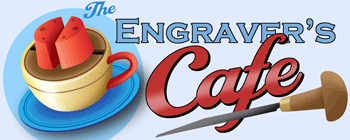Jon C. Dake
Member
- Joined
- Nov 30, 2006
- Messages
- 72
Just to get an idea as to how much further we beginners need to get with our engraving skills, what represents professional quality engraving from the standpoint of execution. Is it no mistakes that can be seen with the naked eye or no mistakes under some degree of magnification, and if under magnification, how much - 5, 10, 15, 20, etc.?






